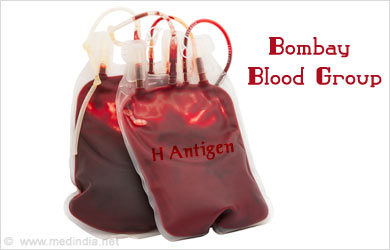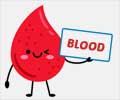- The Hh blood group - (http://www.ncbi.nlm.nih.gov/books/nbk2268/)
About
Bombay blood group is a rare blood type that was first discovered in a patient of Bombay, now called Mumbai. It is a rare condition and has been reported in 1 of 10,000 individuals in India and 1 in a million people in Europe.

People with Bombay blood group appear that they have an O blood group; however, they suffer from a reaction if they are transfused with any other blood group including O blood.
Why does this happen? This happens because the person lacks an antigen called the H antigen. The H antigen is a precursor protein that gives rise to the A and B antigens, on the basis of which people are classified into the A, B or AB
It is also important to remember that people with Bombay blood group can donate blood only to those of this group.
Because Bombay blood group is very rare, a database of individuals of this blood group is maintained so that these individuals can help each other at times of need. The situation is even more difficult if a person with a Bombay blood group develops thalassemia, a condition that requires frequent blood transfusions. Women with Bombay blood group may theoretically deliver babies with hemolytic disease of the newborn if the baby does not inherit the same blood type, though such cases are not known as yet.
Some tips to remember if you have Bombay blood group:
- Enter your name in one of the databases that keeps information about individuals with Bombay blood group.
- If you are in good health, do consider donating your blood to those of the same blood group in times of need. At the same time, it is better not to donate at regular camps but only when the need arises to prevent wastage of blood.
- Try to maintain a healthy lifestyle and as far as possible, avoid situations that will raise the requirement for blood.
Finally, the presence of the Bombay blood group does not mean that you suffer from any illness. It just means that you are a little different. In fact, it also means that you are special, for you can help some individuals whom many others may be unable to help.
 MEDINDIA
MEDINDIA
 Email
Email








